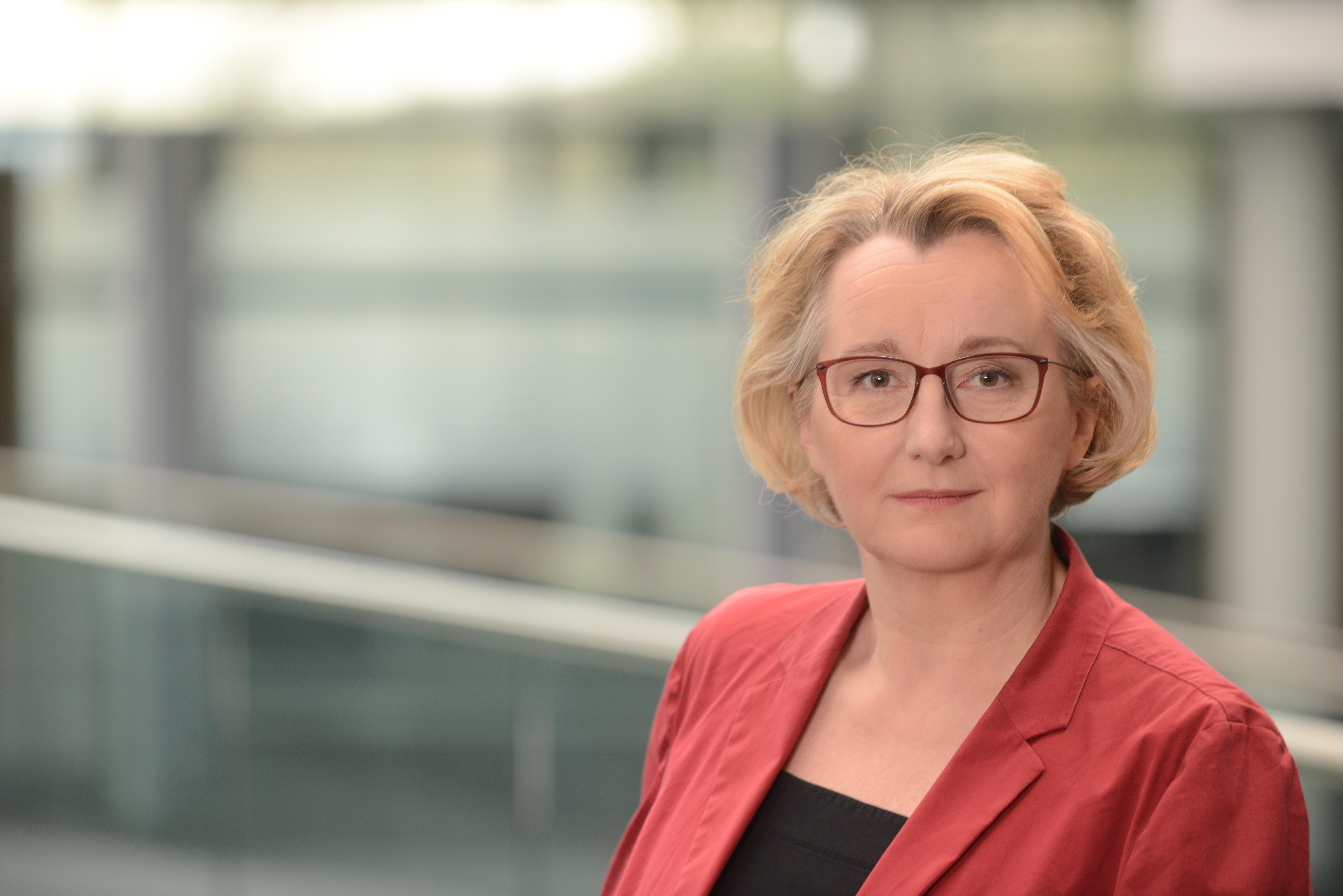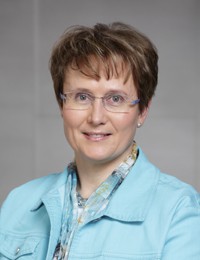50 Years of Informatics
The foundation of the "Institut für Informatik" and the introduction of computer science as a study subject in 1969 at the then Universität Karlsruhe (TH) was a milestone in the success story of computer science in Germany. The predecessor of the KIT was one of the first institutions in Germany to recognize the importance of this branch of science and to firmly establish it in an institute and a study program. The KIT Faculty of Informatics is now celebrating the two anniversaries with a ceremony in the presence of Science Minister Theresia Bauer. Impressions from the Wilhelminian period and current research - from historical encryption machines to modern robot hands - were also conveyed by an accompanying exhibition.
Today's age of digitization is characterized by the innovations of information technology. Electronic devices with software are omnipresent in everyday life. The Internet, app stores, and smart phones have brought computers and computer science into the everyday life of everyone. Today, there is no technical innovation that does not depend in some way on IT solutions. Fifty years ago, on the other hand, the computer was hardly visible outside the professional world, the profession of computer scientist was unknown. The University of Karlsruhe (TH) changed this, founded the "Institute for Computer Science" and established the subject of computer science at the same time as four other universities. Finally, in 1972, the first computer science faculty in Germany was founded in Karlsruhe.
"The active members of the founding period laid the foundation for Karlsruhe to achieve an internationally leading role in the field of computer science in research, teaching and innovation.We would like to thank you for this," said Professor Oliver Kraft, Vice President for Research at the Karlsruhe Institute of Technology. "It is up to those who are active today to continue the success story, for example by supporting the path from idea to application, from graduates to technology start-ups at an early stage and in the long term.
 "Karlsruhe has played a significant role in establishing information technology in Germany and has played a pioneering role in the scientific institutionalisation of this immensely important subject for our society. We would like to congratulate Karlsruhe on this and on this anniversary", said Theresia Bauer, Minister of Science, Research and the Arts.
"Karlsruhe has played a significant role in establishing information technology in Germany and has played a pioneering role in the scientific institutionalisation of this immensely important subject for our society. We would like to congratulate Karlsruhe on this and on this anniversary", said Theresia Bauer, Minister of Science, Research and the Arts.
"Today, we at the KIT Faculty are researching the most diverse challenges of our digital society. In doing so, we benefit from the tradition of computer science at the Karlsruhe location. After all, Karlsruhe computer scientists have been researching many processes that we apply today - such as artificial intelligence and robot technology - for decades," explains Professor Bernhard Beckert, Dean of the KIT Faculty of Informatics.
The research strength of Karlsruhe as a location for information technology is also due to the interaction of strong partners. "The transfer of top-level research into finished applications and the linking of science and industry are the hobby-horses of Karlsruhe as a location for information technology. The foundation stone for the FZI Forschungszentrum Informatik, today an innovation partner of KIT, was laid at the Universität Karlsruhe (TH) in 1984. Together with our partners from industry, politics, and society, we have been developing IT solutions for various areas of everyday life in close cooperation with KIT ever since," explains Jan Wiesenberger, director of the FZI Forschungszentrum Informatik.
"The combination of the three institutions KIT, FZI, and Fraunhofer IOSB forms the perfect breeding ground for the sustainable implementation of great ideas. The interaction of university teaching, large-scale national research, and application-oriented research for industry creates unique opportunities. This constellation attracts outstanding minds from all over the world to Karlsruhe," adds Professor Jürgen Beyerer, head of the Fraunhofer IOSB and professor of computer science at KIT.
In research-oriented teaching, students also benefit from the broad-based research. They study at the pulse of computer science research and, as graduates, have the future-proof know-how that the economy demands. They are prepared in a research-oriented manner for the current tasks in business, science and society and, last but not least, they enliven the strong local start-up scene in Karlsruhe.

"The KIT Faculty of Informatics is a figurehead for the science location Karlsruhe," says Gabriele Luczak-Schwarz, First Mayor of the City of Karlsruhe. "Here, outstanding specialists who are drivers of their industry with innovative ideas and visions are trained. The local IT companies benefit directly from this, and Karlsruhe and the entire TechnologyRegion will be further strengthened as an attractive business and IT location.
The KIT Faculty of Informatics is one of the largest faculties in Germany with currently about 3500 students and more than 200 courses in the field of informatics. The quality of education is also reflected in the good results in the relevant national and international rankings. In keeping with the 50th anniversary, the number of graduates in computer science at KIT has exceeded the 10000 mark. In the winter semester 2018/19, more than 700 new students enrolled in the study course of computer science.
Today's KIT Faculty of Informatics is researching the major problems of our time, such as autonomous robotic assistance systems or artificial intelligence methods. Teaching benefits equally from current research and the long tradition.
Ralf Reussner, Vice Dean for Research of the KIT Faculty of Informatics, states: "Today, what was still the boldest vision for 50 years is true: in almost every technical innovation there is informatics, often even in the very core. With new business models made possible by it, computer science transforms society. Conversely, IT itself is also changing. The obligation arising from today's celebrated 50-year tradition is for us now and in the future to anticipate and shape this change in information technology here in Karlsruhe and to try to be a national and international role model, just as we did 50 years ago.
